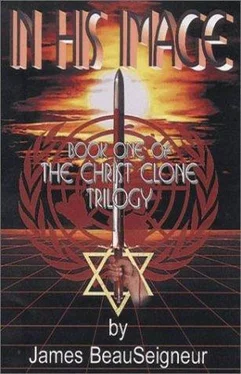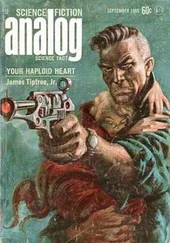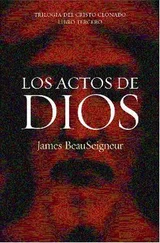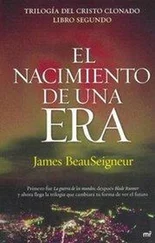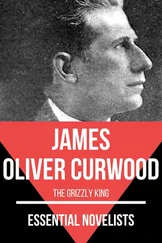"Hold it," Christopher said. "I think I've missed something. How does my becoming the Italian ambassador give Italy a voice on the Security Council?"
"That's why I have agreed to support Ambassador Moore's election as Europe's Primary on the Security Council," Milner answered. "Presently, five European nations have committed their support to him. For my part, I am to provide him with the three additional votes he'll need to be elected as Primary. In exchange for these three votes, Ambassador Moore will support my candidate to replace him as Alternate member. You, Christopher, will be my candidate. And that will give Italy its representation on the Security Council."
Christopher took a deep breath and shook his head in wonderment. "But how can you promise the votes of three countries?"
"Well, one of those votes will come from Italy; that is, from you," Milner answered.
"And the other two?"
"Christopher, Alice and I are not without some influence among the members of the U.N. I've quite a large number of chits which I may call. And Alice, well, let's just say that there are many people in the United Nations who greatly value her opinions."
They rode for the next few minutes in silence, but as they pulled up to Two United Nations Plaza where the Italian Mission is located, across the street from the U.N., Secretary Milner sought to reassure Christopher. "Christopher, I don't know what you're feeling right now, but let me assure you, you should not for a moment feel like this position was bought. In very few countries can ambassadorships still be bought and sold. Instead, you have been sold to the Italian president as the best person for the position and for Italy."
"Thank you, Mr. Secretary. I'm glad you put it that way. I just keep expecting to wake up and find out this whole conversation has been a dream, or maybe for someone to yell 'surprise' and tell me this is all a practical joke."
Milner knew Christopher well enough to know that no response was necessary, but Alice Bernley answered, "It's no joke, Christopher."
As Christopher got out of the car, he had one more thought, "I'm supposed to meet Decker in his office."
"I'll call and let him know you'll be late," Milner volunteered.
"Yeah, thanks, I'd appreciate that. But that's not what I'm thinking about. I'm wondering how I'm going to explain why I'm late."
Simple Arithmetic
Monday, July 29, 2019
Ambassador Lee Yun-Mai of China called to order the session of the United Nations Security Council and welcomed each of the new members and Alternates on behalf of the whole Council. The position of the Security Council President rotated among the ten regions on a monthly basis, and so regularly fell to each of the Primary members. On occasion, when a Primary was not in attendance, the Alternate from that region would stand in. It was not a particularly cherished position, but in the absence of a Secretary-General it provided the only point of focus for the press. Ambassador Lee was one of the most experienced members of the Council. Now in her seventies and with more than thirty years of diplomatic service, she had served during all but three of the years during which Hansen was Secretary-General. As much as anyone, she hoped to limit the spectacle of the event that was about to unfold, but the election of the first Secretary-General since Jon Hansen would not be without its drama. In much of the world the proceedings were being carried live, with an expected total audience of a half-billion listeners and viewers. Under the circumstances, it was unrealistic to hope for total abstinence from grand-standing by the members.
Italian Ambassador Christopher Goodman sat quietly at the C-shaped table in the place assigned to the European Alternate member of the Security Council. There was little for him to do but watch: as an Alternate he had no power to nominate, second, or even vote on the election of the new Secretary-General. On most matters before the Security Council, he could speak when the floor was opened for debate, but for the election of the Secretary-General there would be no debate, only nominations, seconds, and votes. Despite the magnitude of the matter before them at this moment, the Alternate members would have to be satisfied to be front-row observers.
If Christopher had needed any distraction, there were many other pressing matters to think about. Secretary Milner's projections about India had been right on target. Nikhil Gandhi, the former Indian prime minister, had won the seat as Primary member of the Security Council from India, and, as expected, Rajiv Advani was now in India seeking to replace Gandhi as prime minister. Even more pressing was the famine in Pakistan and Northern India. With Hansen's death the work to provide an appropriate level of relief had come to a virtual standstill. Christopher's replacement at FAO, along with ECOSOC's Executive Director Louis Colleta, were doing all they could with the resources available, but the matter was now stalled, awaiting debate by the Security Council. Even if it did finally come to the floor for a vote, without the driving force of Hansen to guide it through, there was little hope that sufficient relief from the food-producing regions would be approved.
Christopher was in no position to help. As the Alternate from Europe, Christopher had replaced Moore as Chairman of the World Peace Organization (WPO). While Christopher's experience would have better suited him to work with Executive Director Louis Colleta as the Alternate in charge of ECOSOC, that position had been held for the last two years by the ambassador from Australia. Under current world conditions, ECOSOC offered far greater visibility and hence the Australian ambassador had no interest in giving it up just because someone else was better qualified for the position.
With no sign of relief and the Pakistani refugee camps growing ever more crowded, those who had the strength were attempting to cross the border into India. Many were intercepted and returned to Pakistan by the United Nations Military Observer Group in India and Pakistan (UNMOGIP), which had monitored the border between the two countries since 1949. But with sixteen hundred miles of border, half of which were traversable (the other half lying in the Great Indian Desert), the number of refugees pouring across into India was far more than the U.N. forces could handle.
The Indian government, while expressing sympathy for the plight of the refugees, responded to the attempted migration by sending its military forces to protect its borders against 'invasion.' India had its own problems with famine and had no interest in allowing any additional mouths at its meager table. So far the Indian military had shown restraint, choosing in most cases to simply escort refugees back across the border with a stern warning. There were a few dozen shootings and beatings, but these were the exceptions. Whether the policy of restraint would continue under a government led by Rajiv Advani remained to be seen. Despite the efforts to stop the migration, UNMOGIP estimated that hundreds of refugees eluded capture on a daily basis, and there was no telling how long the Indian government would allow this to go on before resorting to unrestrained military force.
Once in India, refugees who made it through soon found their efforts to be futile. Although food was not as scarce as in Pakistan, it was impossible to purchase and nearly impossible to beg or steal. Even when the refugees had money, the Hindu merchants chose to sell what little they had to their own people, unless a sufficient premium could be paid to convince them to do otherwise. Added to the refugees' problems were the cultural and religious differences between Pakistanis, who are nearly all Muslims, and Indians, who are predominantly Hindu.
Читать дальше
